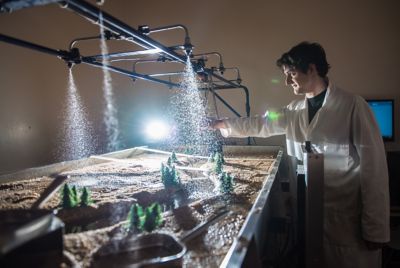Immerse yourself in our environment and make a positive contribution to the world
We have passionate staff, exceptional facilities and a plethora of learning opportunities to further develop a deep understanding of the topic you love.

Studying geography is a great way to gain a broader understanding of the world around us and investigate the links between our many environments. You will explore fundamental issues that impact our everyday lives and examine data to make sense of global challenges in an exciting and engaging learning environment.
All our degrees have a core skills component which is studied over three years. However, the hallmark of our geography degree structures is their breadth and flexibility, so you have the freedom to explore the subjects that matter most to you. We also conduct regular field trips so you can get a real feel for geography in practice and spend more time with your fellow students.
Through our diverse range of modules, your degree offers opportunities to travel to inspirational destinations in the UK and overseas within a warm and safe community.
Nottingham students benefit from an interesting and dynamic learning environment. The School of Geography has a wide variety of laboratories dedicated to the physical and chemical analysis of sediments and water. We also have three large computing facilities.
We love that you love your subject - we do too. Join us at the University of Nottingham and use your passion to shape our world.